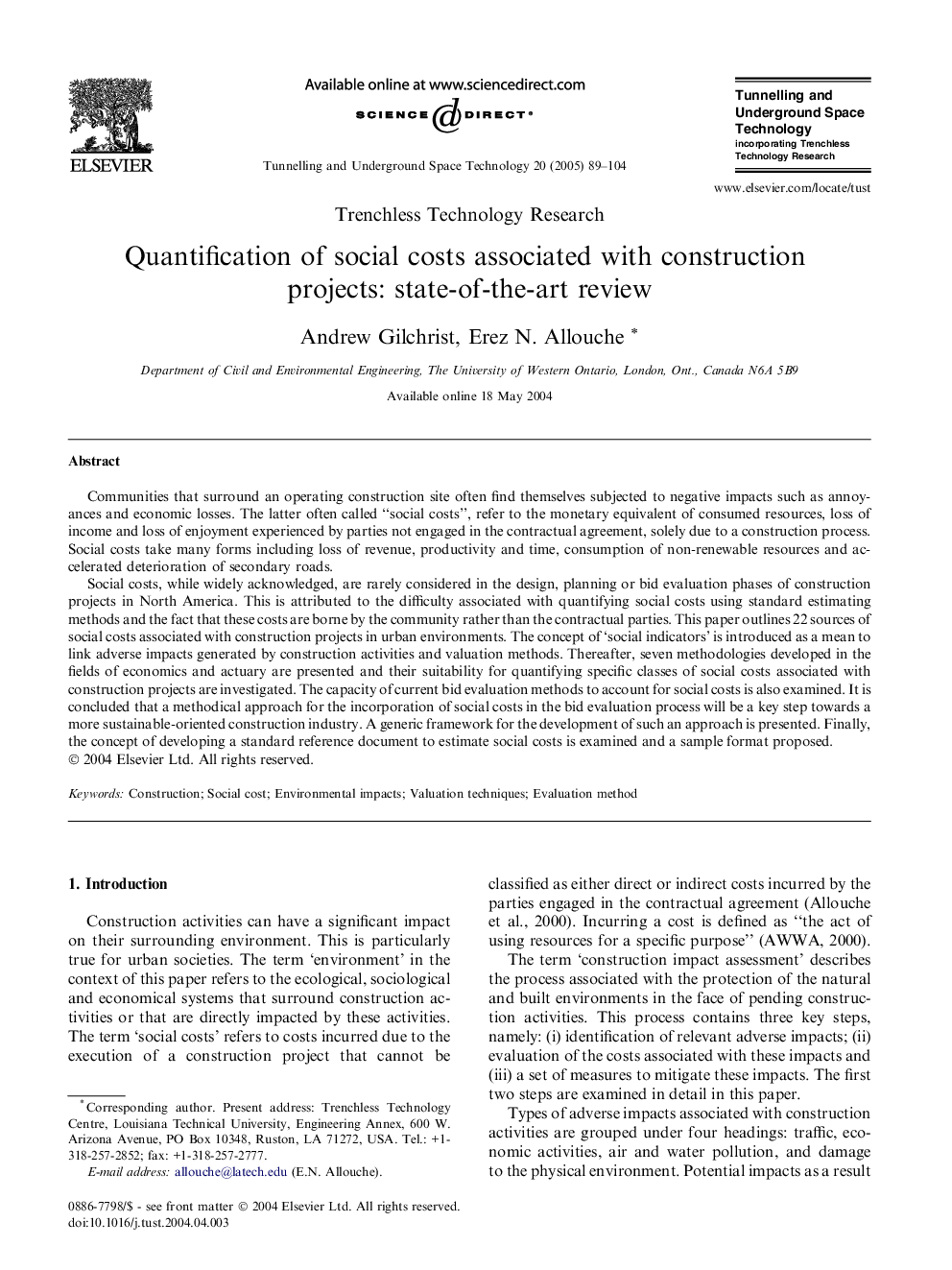| Article ID | Journal | Published Year | Pages | File Type |
|---|---|---|---|---|
| 10296517 | Tunnelling and Underground Space Technology | 2005 | 16 Pages |
Abstract
Social costs, while widely acknowledged, are rarely considered in the design, planning or bid evaluation phases of construction projects in North America. This is attributed to the difficulty associated with quantifying social costs using standard estimating methods and the fact that these costs are borne by the community rather than the contractual parties. This paper outlines 22 sources of social costs associated with construction projects in urban environments. The concept of `social indicators' is introduced as a mean to link adverse impacts generated by construction activities and valuation methods. Thereafter, seven methodologies developed in the fields of economics and actuary are presented and their suitability for quantifying specific classes of social costs associated with construction projects are investigated. The capacity of current bid evaluation methods to account for social costs is also examined. It is concluded that a methodical approach for the incorporation of social costs in the bid evaluation process will be a key step towards a more sustainable-oriented construction industry. A generic framework for the development of such an approach is presented. Finally, the concept of developing a standard reference document to estimate social costs is examined and a sample format proposed.
Related Topics
Physical Sciences and Engineering
Earth and Planetary Sciences
Geotechnical Engineering and Engineering Geology
Authors
Andrew Gilchrist, Erez N. Allouche,
